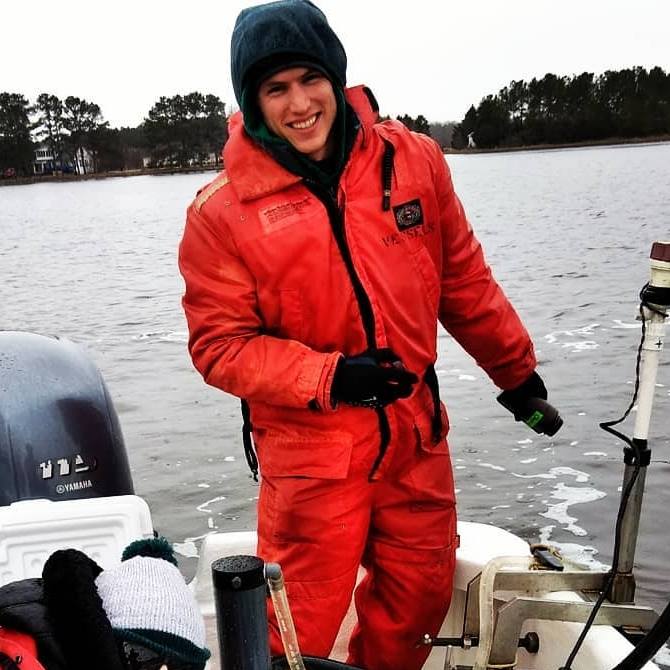M.A.D. for Marshes

Derek Detweiler is fascinated with marsh biogeochemistry, and as a newly confirmed Margaret A. Davidson Fellow with Chesapeake Bay National Estuarine Research Reserve – Virginia (CBNERR-VA), he’ll be able to take exploration of this interest to new heights.
“I am thrilled to have the opportunity to not only conduct research within CBNERR-VA sites,” says Detwiler, “but to also broaden the impact of my research by collaborating with the reserve’s education, stewardship and training sectors. I am looking forward to the professional development opportunities offered through this Fellowship, and I am excited to continue growing as a young marine scientist.”
The Margaret A. Davidson Graduate Fellowship is a new NOAA program that provides funding to graduate students to conduct estuarine research within one of the 29 reserves in the National Estuarine Research Reserve System (NERRS). CBNERR-VA will support Detweiler, its first Davidson Fellow, as mentors, scientists and community liaisons in his research and related outreach on the tidal marsh carbon cycle.
“Derek is a great choice for our first Davidson fellow. He’s utilizing CBNERR-VA sites, he’s bringing a new research component to our reserve, and he’s interested in how to broaden the reach of his work to other audiences through our Coastal Training, Education and Stewardship programs. We are thrilled to begin working with him and bring him into the NERRS family.” Sarah Nuss, Education Coordinator for CBNERR-VA, is serving in the capacity of Detweiler’s mentor during his fellowship.
Specifically, Detweiler will examine the chemical composition and fate of organic carbon in marsh soils. Tidal marshes are some of the most productive ecosystems on Earth and play a critical role in carbon storage, processing, and export to adjacent estuaries where they may support primary and secondary production.
Detweiler’s Davidson Fellowship research will help provide insight into the mechanisms behind carbon decomposition and potential export in the context of environmental disturbance, such as sea level rise and invasive species. Notably, data generated from this project will have implications for developing reliable coastal carbon budgets and models that are needed to predict how the coastal carbon cycle and ecosystem services will respond to climate change.
The goals of the Davidson Fellowship are to support the next generation of leaders in estuarine science and coastal management, to address critical reserve management priorities through high-quality research, and to develop a strong network among the fellows that remains after the fellowship well into their careers. More on the Davidson Fellowship can be found here.
